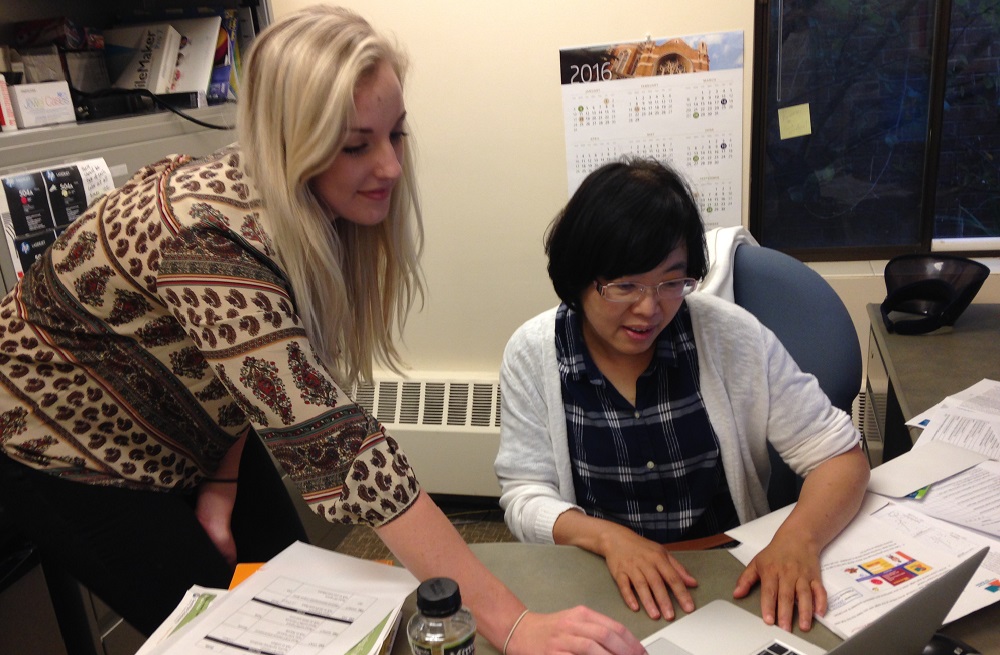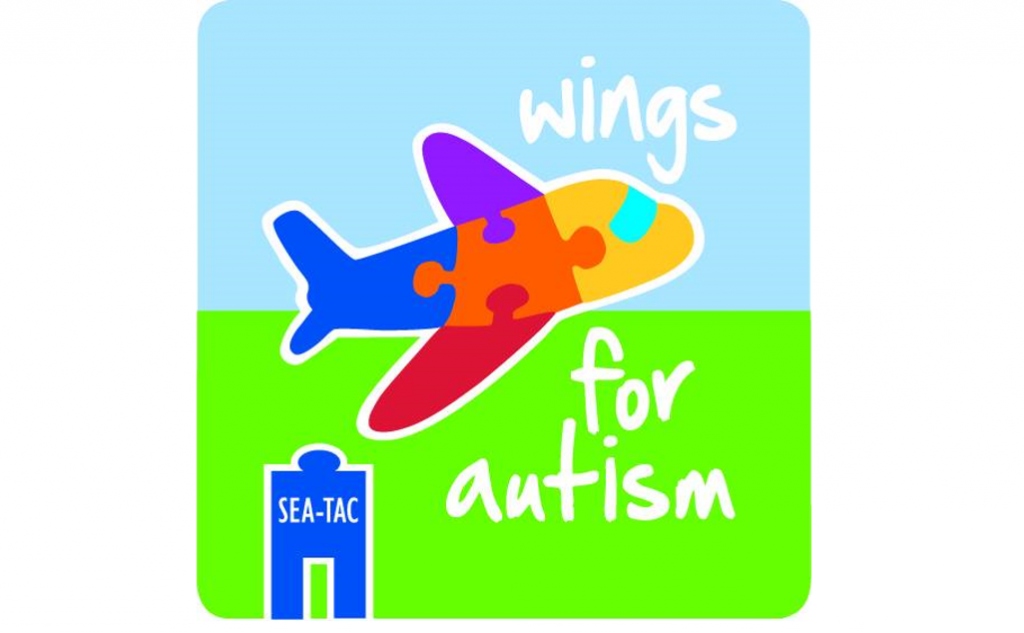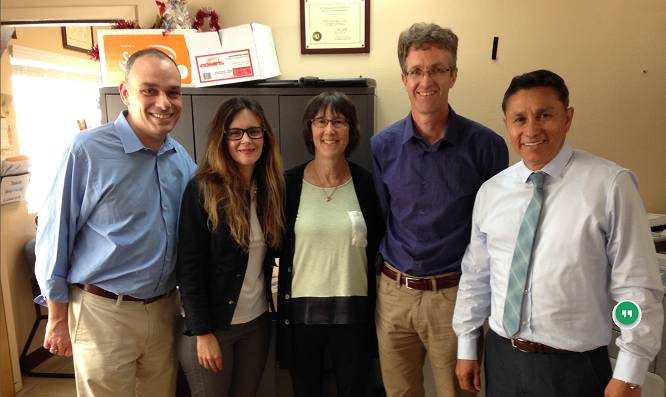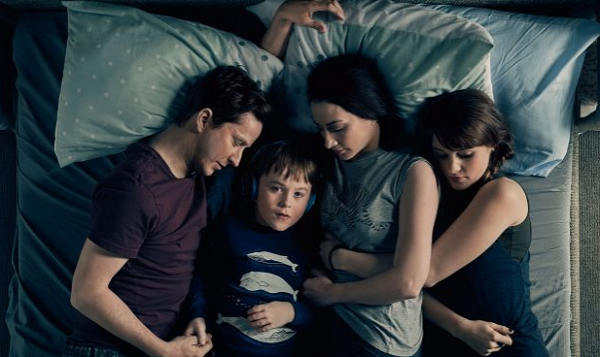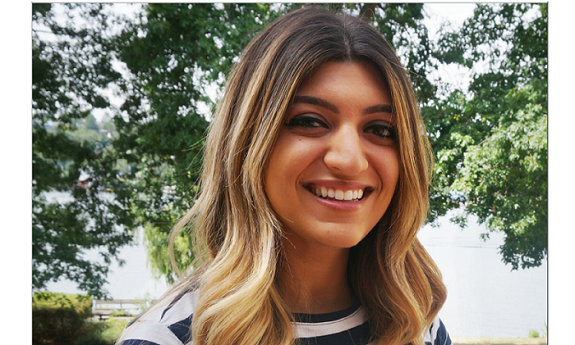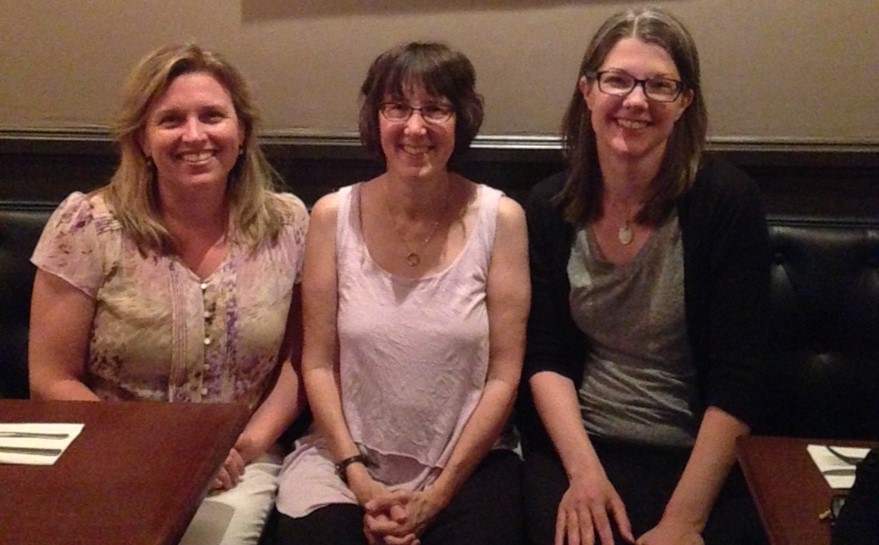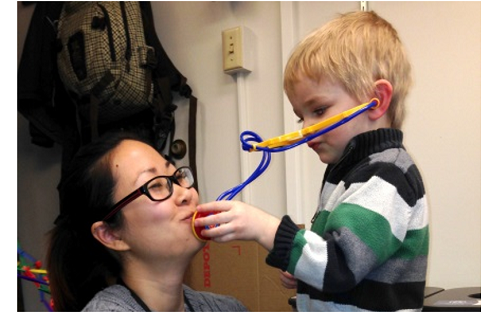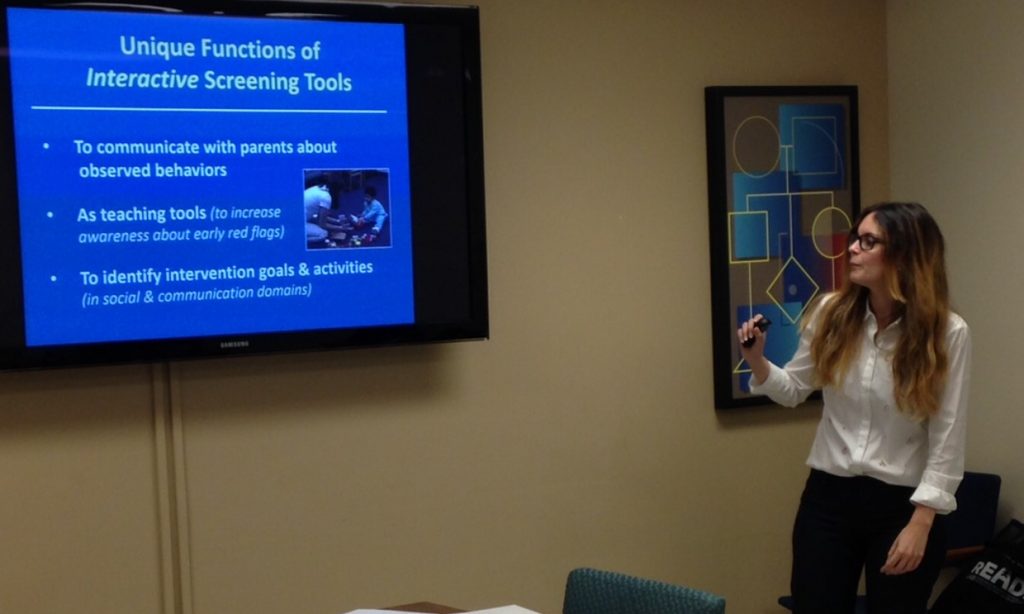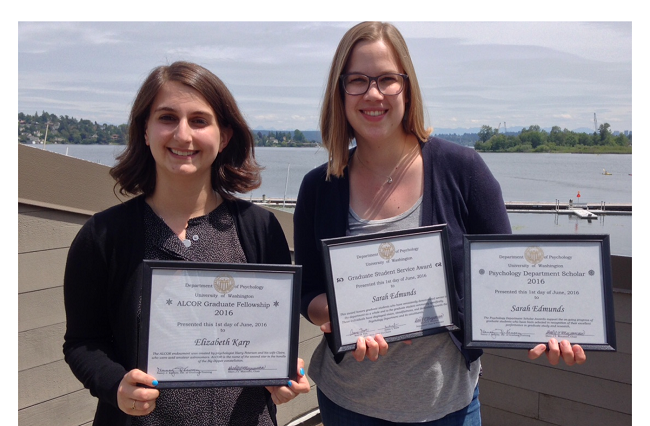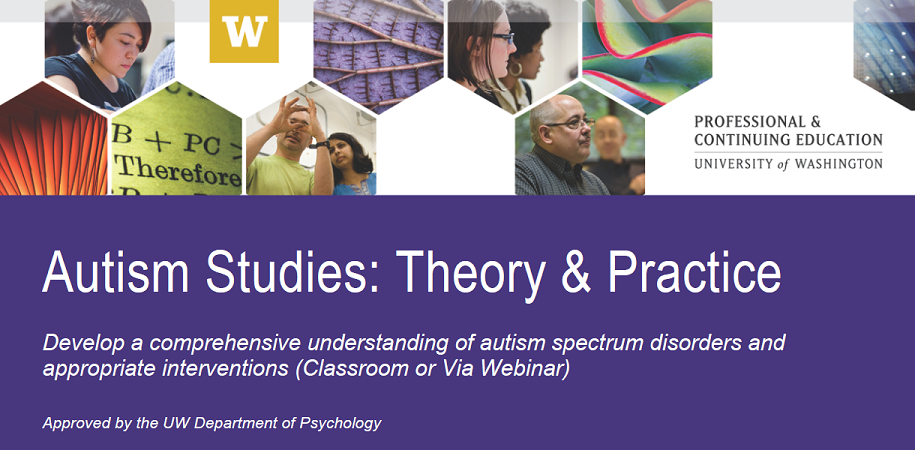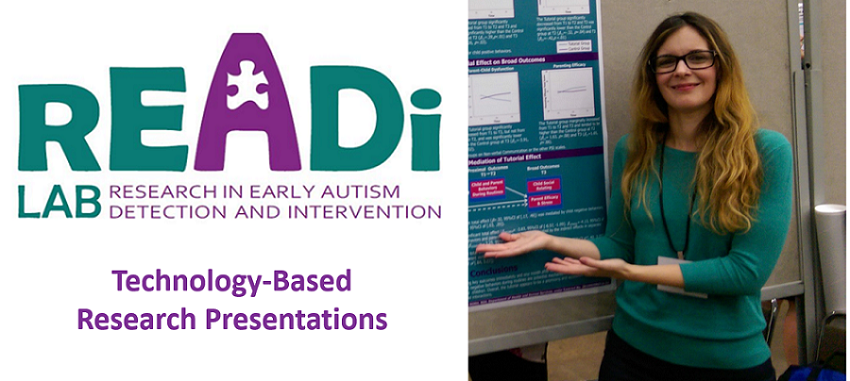Today was Dr. Paul Yoder’s first day as a Visiting Professor at UW, where he will be spending a 4-month sabbatical. Paul is an accomplished methodologist and intervention researcher, a Professor of Special Education at Vanderbilt, and a longtime colleague and collaborator with READi Lab director Wendy Stone. He is PI on the ImPACT intervention grant, which is currently underway at both Vanderbilt and UW. For this grant we are recruiting families who have a child with ASD and a younger infant between 12 and 18 months old. Families are randomized to either the intervention condition or the assess-and-monitor condition, with the goals of understanding: (1) the usefulness of ImPACT for promoting social-communication development in infants at elevated risk for ASD, (2) the infants and families for whom this intervention is most effective, and (3) the mechanisms underlying this intervention’s effects on infant’s social and language development. We are excited that Paul will be spending some time with us as we implement this project!
Are two languages better than one?
An article published recently in Spectrum News discusses whether learning more than one language is beneficial for children with ASD. Given that children with ASD often have difficulties with language learning, multilingual families in the U.S. are usually advised to speak to their child only in English. However, a few studies indicate that children with ASD: (1) can learn two languages as well as they learn one; and (2) may become more socially isolated if their family speaks to them in a non-native language (e.g., English) in which they are not fully proficient. Because there is now considerable evidence that multilingualism is associated with cognitive benefits in typically developing children, additional studies are needed to empirically examine the potential benefits of multilingualism for children with ASD and other developmental disorders. To read the article in its entirety, click here.
Cheer On the Home Team!
The Seattle Storm is partnering with Autism Speaks for an Autism Awareness Day on September 18, when they face the Chicago Sky. As part of this special event, The Storm is offering discounted tickets and a portion of the proceeds with be donated to Autism Speaks. To purchase your tickets and cheer on the home team, click here! You may see a pop-up with this message: “This item currently does not have available tickets for purchase but may have additional availability based on a promo offer.” If so, select the “continue” option and enter the offer code AUTISM.
READi Lab welcomes visiting professor from Taiwan
This week the READi Lab hosted Dr. ChuSui Lin, professor of special education at Chung-Yuan Christian University. Dr. Lin conducts intervention research with young children with ASD, and is visiting our lab to learn about our various research projects. In the photo above, READi Lab coordinator Katie Ragsdale is helping Dr. Lin access the online STAT training tutorial for her future work in Taiwan.
Planning a plane ride with a child with ASD?
The Arc of King County is sponsoring a Wings for Autism® event that will take place on Saturday, October 15th. This event provides children with ASD and their parents opportunities to experience every aspect of navigating an airport, from getting a boarding pass, to going through the security line, to boarding an airplane. In addition to providing practice for children, it offers a great opportunity for airport personnel to learn about ASD so that they can make the travel experience more comfortable for children and their families. Registration for this event will open up on Thursday, July 21st, at 8:30 am, and slots get filled up very quickly! To learn more, and access the registration link on Thursday, click here!
A Tale of Two Daughters
In a recent article in The Mighty, a mother shares her experiences raising two daughters with ASD who have remarkably different social profiles. In her story, Jessica Offer discusses some of the misconceptions surrounding sociability and ASD, highlights how individuals with ASD have unique personalities with varying levels of introversion/extraversion, and provides some helpful suggestions for working on key aspects of socialization with children with ASD. To read the article in its entirety, click here!
Visit Our New and Improved Resources Webpage!
We have updated our Autism Resources webpage to include more local, state, national, and online resources for families who have children with ASD. Click here to view the new page, and please let us know if you have any additional recommendations or suggestions!
Free Webinar on Challenging Behaviors – This Thursday!
The Simons Foundation Powering Autism Research for Knowledge (SPARK) is hosting a free online webinar this Thursday (July 7th) from 1:00pm to 2:30pm EST, which will discuss why challenging behaviors occur in children with autism and ways for parents and teachers to prevent them. The webinar will include a 15-minute Q & A session at the end. Click here to register. You may also submit questions before or during the seminar to Alexandra Stephens, webinar host, at astephens@simonsfoundation.org.
Promoting early detection of ASD in the community
The READi Lab has teamed up with physicians at the Sea Mar Community Health Center in Seattle to offer a two-part, office-based workshop series on early identification of ASD. These workshops covered topics including the early behavioral features of ASD, the use of the M-CHAT-R/F screen at 18-month well-child visits, how to talk to parents about concerns (and respond when they present concerns), and provided up-to-date information about referral processes and local resources. These workshops were the first of their kind for us and we are excited about conducting similar workshops next year as part of our Screen-Refer-Treat Study. We thank our wonderful hosts at Sea Mar, as well as the UW Institute for Translational Health Services (ITHS), who provided funding for this project.
Pictured in this photo (taken after yesterday’s workshop): Drs. Kyle Steinman, Lisa Ibañez, and Wendy Stone from UW, and Drs. Cor Van Niel and Ricardo Jimenez from Sea Mar.
New TV Show About Autism
Next month SundanceTV will be premiering “The A Word,” a one-hour British drama series that chronicles a family’s experience raising a child with ASD. The series’ first of six episodes will air on July 13th at 10 pm ET. To learn more about the series, click here . Let us know what you think about the show – we haven’t seen any previews this time!
Welcome to Roya!!
This week, we are happy to welcome Roya Baharloo to our team as a research study assistant! She graduated recently from UW with a B.A. in Psychology and a minor in Spanish. Roya will be working on our community-based Screen-Refer-Treat study, and will also conduct behavioral assessments for the ImPACT study. Before joining the READi Lab, Roya worked as a research assistant in Jessica Sommerville’s lab, where she studied early social cognitive development. She is excited about continuing to work with young children as well as learning more about the complexities of ASD.
To read Roya’s bio and learn more about the entire READi Lab team, visit our About Us section.
Have suggestions for where autism research should be headed?
The Interagency Autism Coordinating Committee (IACC) is seeking input from individuals with ASD, family members, community providers, advocates, and researchers to inform the development of its strategic plan for 2016. The IACC is a federal advisory committee that coordinates all efforts within the Department of Health and Human Services related to ASD, and helps ensure that a wide range of ideas and perspectives are represented in a public forum. Public comments are being accepted now through July 29, 2016. Now is the time to provide your input and feedback on the seven key topic areas at the center of the strategic plan: diagnosis and screening, underlying biology, risk factors, treatments, services, lifespan issues, and other infrastructure and surveillance needs. Click here submit your comments!
Busy Week of Presentations!
READi Lab Director Wendy Stone is on the East Coast this week presenting on the lab’s community-based research. The first stop is at the University of North Carolina TEACCH Program, where she is speaking about lessons learned during our work in community settings. The next stop will be at the National Institutes of Health (NIH) in Bethesda, MD to present on the progress of the Screen-Refer-Treat Study. These trips are not ALL work related – she is also getting to see old friends from her time as a TEACCH intern and catch up with two former Vanderbilt graduate students, Drs. Lauren Turner-Brown (left) and Elaine Coonrod (right). She will also overlap briefly at the DC airport with her son, Zach, who is attending a different NIH meeting this week!
Now on YouTube!
The public lecture co-presented by READi Lab Director Dr. Wendy Stone and Dr. David Mandell (from University of Pennsylvania) on the topic of Autism Intervention in the Community is now available for your viewing pleasure! The lecture, which was part of the 2016 Allen L. Edwards Lecture Series, highlights the challenges and opportunities related to translating research findings to community practice.
Dr. Wendy Stone- Transforming Healthcare Systems to Increase Early Access to Autism-Specialized Services
Dr. David Mandell- Why Autism Interventions Fail in Schools and What To Do About It
Thank you, Parents!
A few weeks ago, we asked for your suggestions about how doctors should talk to parents about ASD concerns– and you delivered! Your responses enabled us to develop two Tip Sheets for Primary Care Providers (PCPs). These tip sheets provide helpful and unhelpful ways to discuss ASD concerns when either parents or PCPs are the first to express them. We will be sharing these documents with PCPs at our upcoming training workshops and you can download them here (PCPs Express Concerns, Parents Express Concerns)!
From Global Back to Local!
While Wendy has been globetrotting to conduct STAT training workshops in Poland and Taiwan, today Lisa led a local STAT workshop at UW for community providers affiliated with the UW LEND program, Providence Regional Medical Center (Everett), and Northwest Center. Although we missed the opportunity to bask in today’s sunshine, we engaged in lively discussions about the early signs of autism and the screening process!
Our award-winning students!
The UW Psychology Department’s Annual Research Festival took place today, and two of our READi Lab clinical psychology students received awards. Lizzy Karp and Sarah Edmunds both received summer scholarship awards. Lizzy will be using her funding to examine parents’ stress and emotion regulation, and their experiences of intervention research, as part of our ImPACT study. Sarah will be using her funding to study whether the ImPACT intervention affects vocal and language development in toddlers at risk for ASD by increasing their parents’ responsiveness to specific vocal sounds. Sarah also received a service award for her work on the Department’s Diversity Steering Committee. Way to go Lizzy and Sarah!
Did you know that UW offers a Certificate in Autism Studies?
This Fall will begin the third year of UW’s Certificate in Autism Studies: Theory & Practice. The course is directed by Dr. Raphael Bernier, who is an Associate Professor in Psychiatry and Behavioral Sciences at UW and Clinical Director of the Seattle Children’s Autism Center. This three quarter course provides professionals and paraprofessionals with an understanding of ASD at both the scientific and practical levels by linking cutting edge scientific findings to best practices in treatment and education. The goal is to provide greater insight into the scientific foundations of ASD that will lead to deeper and broader understanding of intervention approaches and their application. Participation is available through classroom-based and webinar options. To learn more, you can read the program summary or visit its webpage.
Re-Imagining the Spectrum
The Mighty featured a comic yesterday by Rebecca Burgess, in which the autism spectrum is re-conceptualized from being linear in nature (i.e., not autistic, very autistic, or somewhere in between) to being a round spectrum comprising different characteristics that can each be present to different degrees. Burgess created the comic to reduce some of the stereotypes of autism that result in inaccurate expectations, and to emphasize the diversity that exists among individuals on the autism spectrum. To view this insightful comic, click here!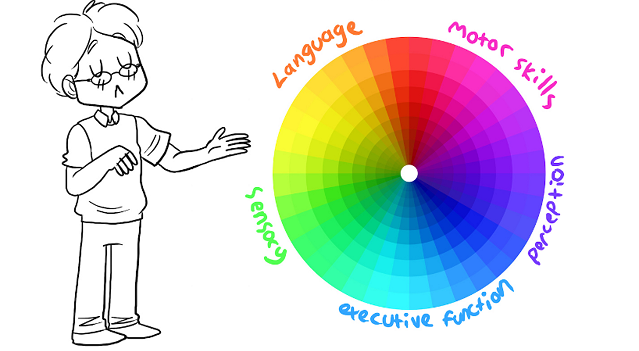
READi Lab Presents Technology-Based Research
Last week at IMFAR, clinical psychology graduate student Sarah Edmunds and Assistant Director Lisa Ibañez presented data on studies that applied technology to improve measurement and behaviors.
Sarah gave a poster presentation that examined whether children’s eye-to-eye gaze during social interactions can be coded reliably from video captured by a “point of view” (PoV; eyeglass-mounted camera) camera worn by the social partner, compared to videos from tripod-mounted camcorders. Coders identified looks to eyes, face, and away more reliably, and detected more looks to eyes, when viewing the PoV videos. Children with ASD looked less frequently to the eyes and face and looked away longer than TD children. The PoV camera presents an easily-deployed and cost-effective method for capturing gaze during social interactions. Click here to see Sarah’s poster!
Lisa gave a poster presentation on a randomized control trial examining the effectiveness of an interactive, web-based parenting tutorial for improving: (1) parent and child behaviors during everyday family routines (i.e., proximal outcomes); and (2) parenting efficacy and stress and child social-communication (i.e., broad outcomes). Parents of children with ASD completed questionnaires at baseline (T1), 4 weeks after T1 (T2; post-tutorial completion), and 8 weeks after T1 (T3). For proximal outcomes, the Tutorial group’s (n= 52) ratings were significantly lower for children’s negative behaviors and higher for parents’ use of verbal and non-verbal strategies at T2 and T3 than the Control group’s (n= 52). For broad outcomes, the Tutorial group was significantly lower on parent-child dysfunction at T3, and significantly higher on child social relating at T2 and T3 than the Control group. Click here to see Lisa’s poster! A demo of the parenting tutorial is available at https://uwreadilab.com/online-tutorials.
- « Previous Page
- 1
- …
- 19
- 20
- 21
- 22
- 23
- …
- 27
- Next Page »


